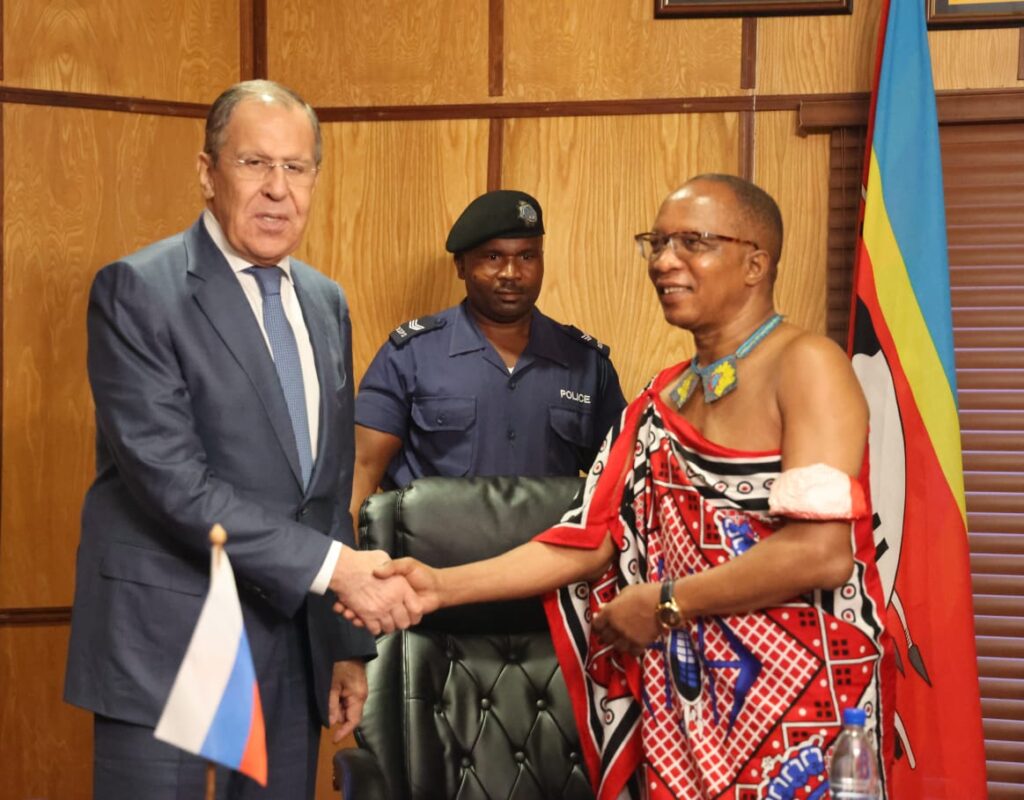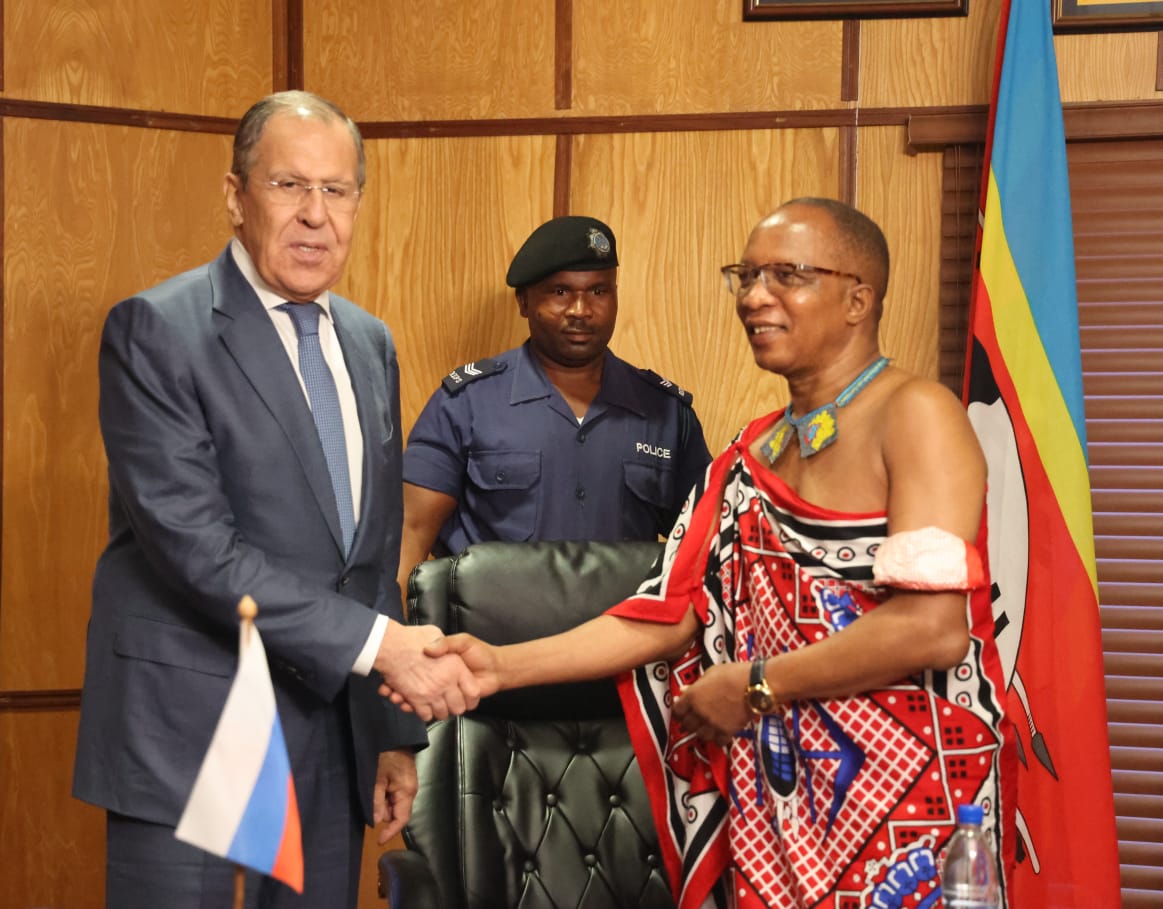
By Sifiso Sibandze
The US President Joe Biden’s administration is visibly stepping up a campaign to build American influence in Africa, where the US has lost ground to its main rivals in what is starting to look like a new Cold War.
A fortnight ago, Vice President Kamala Harris was the latest top official to visit Ghana, Tanzania, and Zambia. Harris followed Treasury Secretary Jenet Yellen and Secretary of State Anthony Blinken who have been both in the minerals-rich region recently.
In December 2022, the US convened a summit with the continent’s leaders and President Biden pledged an E990 billion (US$55 billion) support package for Africa. Eswatini was represented by Prime Minister Cleopas Dlamini on behalf of His Majesty King Mswati III.
Political commentators are of the view that the US push to engage with the African region emerges as Russia’s war in Ukraine and the escalating standoff between the US and China shake up global diplomacy. Political analysts have noted that both sides are seeking to win over non-aligned countries in Africa.
Counterattack
In what is viewed by analysts as an obvious counterattack, the Russian Federation is preparing for the Second Russia – Africa Summit scheduled to take place in July 2023 at St Petersburg. It has reliably been learnt that the issues which would be discussed (agenda items) include but are not limited to trade relations, natural resources development, energy development and security. His Majesty the King took part in the first summit held in Sochi in October 2019.
Notably, of greater concern for Harris and her administration colleagues is the economic contest with China, by far Africa’s biggest partner, with trade set to exceed E4.6 trillion (US$260 billion) this year.
Read More: Russia accuses Ukraine of sabotaging grain deal with a bribery scheme
It has been also noted by political commentators that the US-China rivalry includes a competition to secure minerals that are critical to green energy, with Africa having some of the world’s biggest supplies. The US and China have a dispute over debt relief, as burdens for poor countries rise along with interest rates. Chinese lending to Africa helped countries develop and build infrastructure. US leaders are calling attention to the steep price for borrowers, and the difficulty they face in paying Beijing back.

US officials “won’t say that they are in competition with either China or Russia in Africa,” said Cameron Hudson, a senior associate at the Center for Strategic and International Studies Africa programme. Still, he said, “it’s clear that they are using these visits to draw a vivid distinction between Washington’s approach” and that of its rivals.
Clean Energy
Again, the US is pushing for a transition to clean energy, and African countries hold some of the minerals that are vital to emerging technologies, like lithium and cobalt, which are used to make batteries for electric cars. Officials have suggested that the Wagner Group may play a role in channelling some of those key commodities to Russia.
Again, China is well ahead of the rest of the world in securing a fully-vertical supply chain for electric vehicle production. But it’s still hungry for metals like copper. Of particular interest for EVs is cobalt, of which China, the US and Europe produce very little, while Africa dominates.
Interestingly, at the beginning of the year, the Russian Federation through its Minister of Foreign Affairs, Sergey Lavrov was on a charm offensive as he met the governments of Eswatini, South Africa, Egypt, Dr Congo and Ethiopia to mention a few.
Russia’s African charm comes as its war with Ukraine raged on and the West continued to impose sanctions on the country while providing aid and assistance to its neighbour.
Scramble for Africa
South African Political Analyst Dr Ralph Mathekga observed that the scramble for Africa by Russia is focused on busting the severe sanctions imposed by the US and the West.
In an interview with the Eswatini Financial Times, Dr Mathekga noted that Russia’s forging of closer relations and strengthening ties with the region is motivated by self-interests and is a tactical move to use the region as a strong market for its goods, mainly oil, gas and fertilizer because it has no market to sell them following the severe sanctions imposed by the US and the European Union.

Read More: Russia-Africa Summit a chance for Eswatini to deepen trade
“The economic sanctions are hitting hard on the Russian Federation, and they are crippling its economy. With one of the world’s fastest-growing populations, largest free-trade areas by geographical area and most a diverse set of ecosystems, the Russians have realized that Africa has a critical role to play in addressing its market inaccessibility challenge,” Dr Mathekga said.
Russia is the second-largest producer of gas in the world and among the biggest oil producers, but it currently has a limited market to sell to, hence it is now looking at Africa as an alternative market to counter the sanctions, Dr Mathekga said.
Commodities
He went on to say the Russian Federation had been selling its commodities, mainly gas to China, but now they are in a rough situation because China is faced with liquidity challenges.
“The China economy is not doing well and is expected to slow sharply in 2023 and that is curtailing their continued support to their ally Russia through buying oil and gas at a discounted price,” Dr Mathekga said.
With this scenario, Dr Mathekga is of the view that Russia has realized that Africa is an untapped market because almost all the states are non-aligned and that presents an opportunity for the Kremlin to exploit it.
“In order for the Russian Federation to achieve its bigger goal of turning the region into a dumping area, it needs diplomacy, hence the ongoing extensive forging relations and strengthening ties with African states by the Russian Federation,” Dr Mathekga said.
Forging of Relations
According to Dr Mathekga, in this ongoing forging of relations by Russia, what is topping the agenda is the establishment of trade relations with African countries and the pledge to offer security is just a carrot that is being dangled by the Russians to lure African countries to enter into trade agreements with them.
“Remember that Russia’s trade policies are similar to those of China which has largely steered clear of domestic politics and offered aid, loans and investment with few strings attached, unlike the US and the EU which attach strings that include but are not limited to building democracy and improving governance, promoting development, peace, security trade and investment, and supporting conservation. Russia and China do not ask those questions but are concerned with economic development,” Dr Mathekga said.
Read More: UN maintains its position against Russia
He also noted that the Russian Federation has a huge stock of different commodities that need to be taken somewhere and Africa has been identified as one of the regions because it is non-aligned to either the US or the EU.
In Dr Mathekga’s view, Russia stands a good chance of winning most of the African states who are looking at benefitting from the impending trade relations. Russia has also successfully strengthened ties with Africa in recent months as Western nations tried to isolate it over its invasion of Ukraine, with a significant minority of governments on the continent refusing to condemn its actions.
Energy Crisis
Dr Mthegka also highlighted that Africa is faced with an energy crisis (shortage of oil and gas), and Russia is one of the largest producers, African countries will opt to get little from Russia than nothing.

Other than the possible trade in gas and oil, Dr Mathekga said Africa also presents a huge market for fertilizer. He observed that most African economies are agro-based and which could be a propeller of the African countries to enter into trade relations with Russia.
Currently, there is ongoing trade between Russia and Eswatini but at a minimal scale. According to the United Nations COMTRADE database, exports to Russia were E23.63 million (US$1.39 million) in 2020. The main products exported were fruit juice, Citrus and Tropical Fruits. On imports, Eswatini imported goods worth E20.4 million (US$1.2 million).




